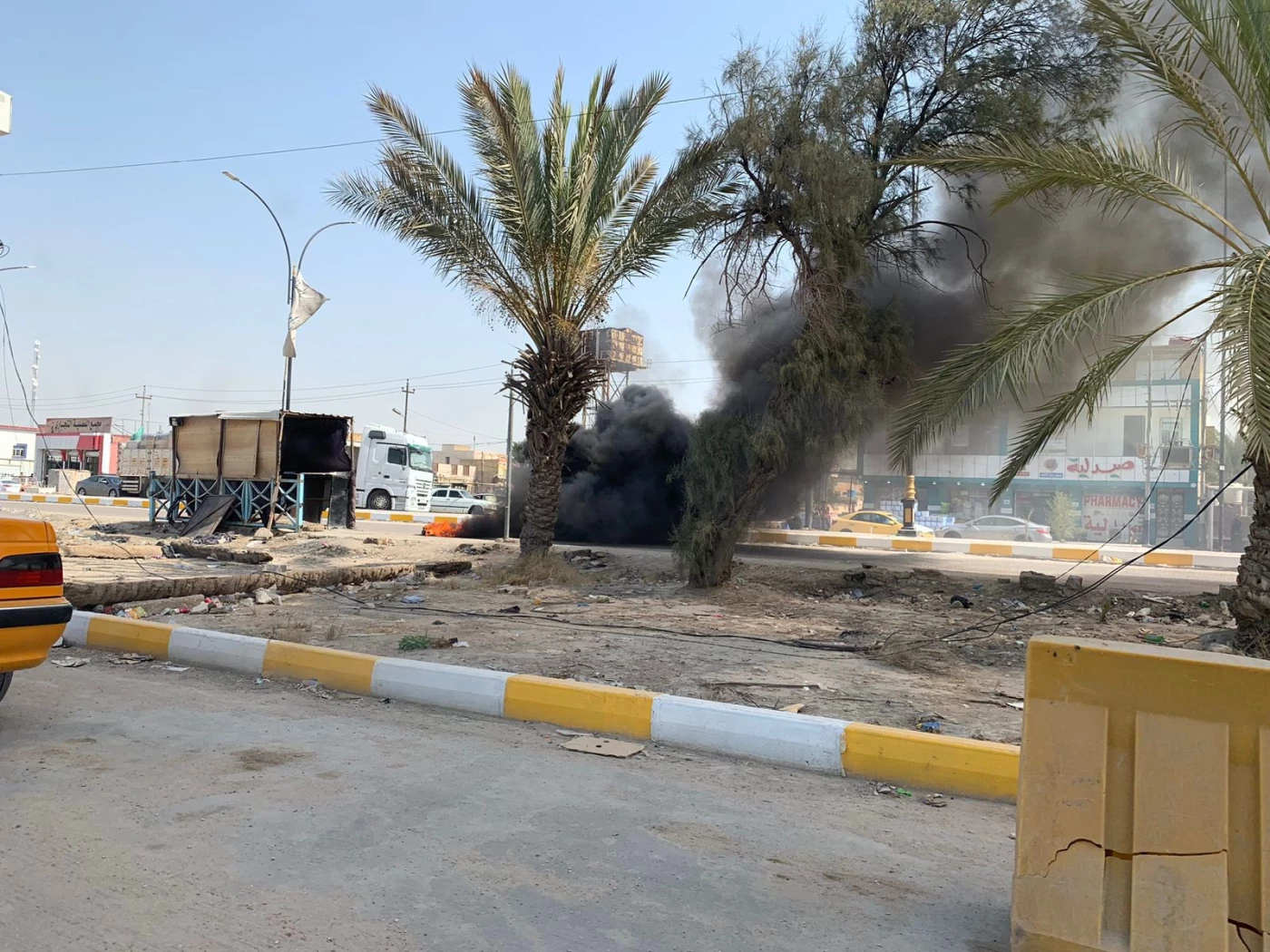Scores of people across Iraq took to the streets on Sunday, protesting electricity shortages as the country suffered from scorching heat in the first few days of summer.
In Diwaniyah city, dozens of residents from the Al-Furat neighborhood took to the streets in response to worsening electricity supply hours since the beginning of the week.
Their frustration intensified when a transformer broke down on Saturday and remained unrepaired by maintenance teams, prompting the citizens to block the street. Security forces intervened, and officials assured the protesters that the issue would be addressed.
Dozens of angry demonstrators took to the streets in #Diwaniyah due to the deteriorating power supply and frequent outages#TheNewRegion pic.twitter.com/gcPFjL3Jw8
— The New Region (@thenewregion) June 22, 2024
Meanwhile, similar discontent is brewing in Nasiriyah, where protesters in Fudaliyah, southeast of the city, expressed their anger by blocking the road to Souq Al-Shuyukh with burning tires.
The protestors were demanding better services, particularly more reliable electricity supply hours. The heat has driven many residents indoors, leaving Nasiriyah’s streets nearly empty and garages closed following the suspension of official work.
Protesters in #Nasiriyah have blocked the road with burning tires on Sunday, protesting against the poor state of services, particularly the limited hours of electricity supply.#TheNewRegion pic.twitter.com/sY1aLMvJnz
— The New Region (@thenewregion) June 23, 2024
Anticipating further demonstrations, dozens of protesters gathered in front of the city’s power plant, heeding calls for an afternoon sit-in to demand an increase in electricity supply for the province.
Video footage shows dozens of demonstrators gathered in front of the power plant in #Nasiriyah on Sunday, demanding increased electricity supply hours in the province. #TheNewRegion pic.twitter.com/7LTP7myf9w
— The New Region (@thenewregion) June 23, 2024
The wave of protests also reached Diyala, where residents of Jezan al-Shoul village in Al-Khalis district, north of the province, blocked the Baghdad-Kirkuk road.
Their grievances include not only poor electricity services but also inadequate infrastructure and water shortages, highlighting a broader issue of neglect in basic services across the region.
Residents of the Jezan al-Shoul area in northern Diyala province protested against poor electricity, inadequate road services, and lack of water by blocking the #Baghdad - #Kirkuk road in Al-Khalis as part of their demonstration.#TheNewRegion pic.twitter.com/hzNVLoP6R7
— The New Region (@thenewregion) June 23, 2024
In response to Prime Minister Mohammed Shia al-Sudani's directives, a series of initiatives have been launched to address Iraq's electricity issues and alleviate the burden on citizens amid high temperatures.
The Minister of Electricity has announced a comprehensive campaign to alleviate electricity congestion in the distribution sector across Baghdad and other provinces.
"The ministry’s production remains stable at over 25,000 megawatts, with ongoing efforts to modernize transmission and distribution," he said.
The Minister expressed optimism that electricity supply hours will stabilize upon completing the first phase of the decongestion campaign.
Additionally, healthcare institutions have been directed to reduce official working hours due to the extreme heat, starting at 7:00 AM and ending at 1:00 PM. All exceptions for early leave have been canceled to conserve electricity and ease the burden on employees.
In al-Muthanna Province, Nizar al-Tamimi, Deputy Head of the Service and Engineering Effort Team and Deputy Minister of Electricity, announced the commencement of 23 projects aimed at reducing electrical congestion.
These projects, initiated under the Prime Minister’s directives, will involve the installation of over 150 transformers and necessary infrastructure in various areas. These efforts are expected to significantly improve the electricity sector and increase supply hours for residents in the province.
During Iraqi summers, temperatures often exceed 50 degrees Celsius, an issue elevated due to shortages of electricity.
For years, Baghdad has relied on importing gas from neighboring Iran to fuel the country’s electricity generation. During excessively hot summers, the country experiences blackouts because Iran sometimes reduces gas exports, claiming they need it for local use.
Iraq, despite possessing the world’s third-largest proven oil reserves, has struggled for years to develop its own natural gas industry.
The country is considered one of the top contributors to global gas flaring, a practice that not only wastes Iraq's potential to produce its own gas and fuel its electricity but also has a negative impact on the climate.


 Facebook
Facebook
 LinkedIn
LinkedIn
 Telegram
Telegram
 X
X



